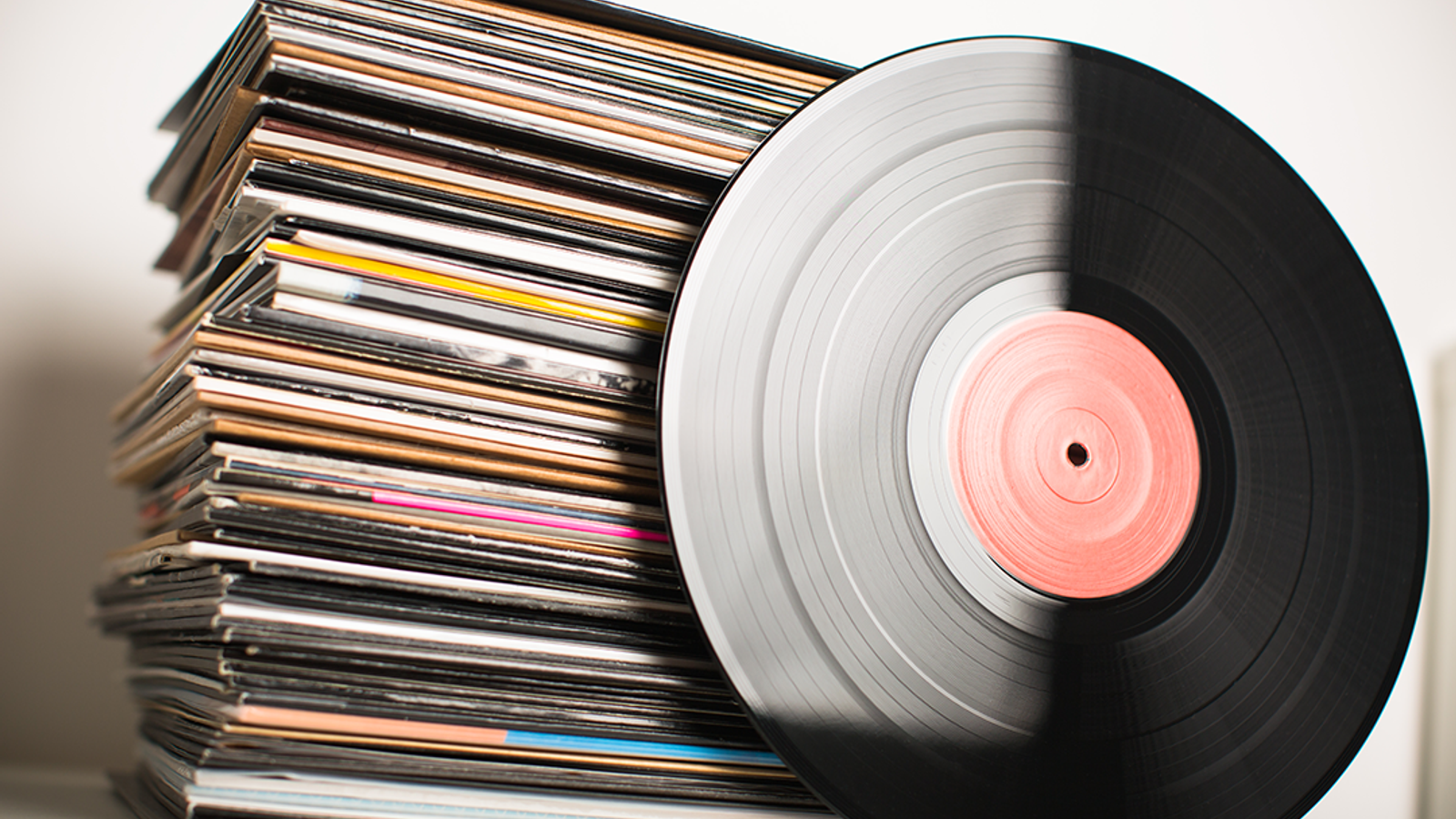Taylor Swift’s new album helped fuel the highest weekly vinyl sales in 30 years – but is our rediscovered love of owning records environmentally reckless?
PVC (poly vinyl chloride), the plastic from which records have traditionally been made, isn’t great for the planet, and concerns have also been raised over packaging as vinyl sales have risedn in recent years.
Rou Reynolds, frontman of chart-topping rock band Enter Shikari, believes leading artists need to shoulder some responsibility to “push forward” change.
“The bigger you are as an artist, the more influence you have, the more you can push things forward and accelerate progression,” he says.
In an interview with Billboard in March, Billie Eilish criticised how “wasteful it is” when “some of the biggest artists in the world” make “40 different vinyl packages”, each with “a different unique thing just to get you to keep buying more”.
“Its reasonable criticism,” says Reynolds, “but I think it’ll basically dissipate as soon as it becomes the standard to use BioVinyl, for instance – that will really take away the possibility of criticism”.
Rather than make records out of regular PVC pellets, over the last few years it has become possible to use renewable sources such as cooking oil or wood pulp.
“Traditional vinyl is an oil-based product,” Reynolds explains. “No one really wants to support the extraction of any more fossil fuels.”
Enter Shikari now insist all their records are made using BioVinyl, and Reynolds is optimistic that if more artists make demands about what their records are made from, it would become the new norm.
“A lot of independent artists, like myself, we can light these fires, then it spreads and before you know it, it will become the industry standard.”
‘The advances are incredible’
Leading voices within vinyl production want the music industry to listen.
“Along with the Vinyl Alliance and the Vinyl Records Manufacturers Association, we’re looking at the whole manufacturing chain,” says Karen Emanuel, chief executive of Key Production, the UK’s largest broker for physical music production.
“I’ve been in the business probably about 35 years and the advances that have been made, it’s incredible. A lot of the big plastics companies, for PVC they’ve found a way replacing the fossil fuel elements [which] could mean as much as a 90% reduction in the carbon footprint of the vinyl.”
The catch, at the moment, is the cost.
“It’s a bit more expensive to manufacture but if enough people manufacture with it then the price point will come down… it’s something that we’re really trying to push people towards.”
Would fans be happy to pay more for a greener product?
Lee Jefferies, the owner of Leicestershire-based vinyl pressing plant Sonic Wax Pressing, is such a big vinyl lover, he spent £100,000 buying the world’s most valuable Motown record.
“Ultimately everything works from retail back,” he says “And with retail prices already being quite high on vinyl it’s very hard for people to have the extra money to buy biodegradable vinyl.”
But a recent survey conducted by Key Production found more than two thirds (69%) of vinyl buyers indicated they would be encouraged to buy more if the records were made with a reduced environmental impact.
The findings also revealed that the vast majority, 77%, of regular vinyl customers are willing to pay a premium for reduced impact products, signalling a significant market demand for eco-friendly alternatives.
Is there a bigger problem?
Ultimately, either the consumer, artists or labels will have to shoulder the cost if vinyl is to be made more sustainably.
But while a big old hunk of PVC might feel like the least green option, are we getting ourselves in a spin when we should also be looking in another direction?
Figures from the Recording Industry Association of America (RIAA) and International Federation of the Phonographic Industry (IFPI) put global vinyl sales for last year at about 80 million – using the IMPALA indepdent music companies association’s music emissions calculator, that works out at producing around 156k tonnes of CO2 emissions.
Read more:
UK vinyl sales at highest level since 1990
Vinyl added to typical shopping basket used in inflation calculation
If you compare that to streaming, with Spotify alone – responsible for about a third of the market – its own estimates for its global carbon emissions were 280k tonnes last year, with vast amounts of electricity being used to power its data storage servers.
For Enter Shikari’s Reynolds, the potential to make vinyl greener is exciting.
“It has the same quality, the same appearance, you really wouldn’t notice the difference, which is incredible,” he says. “I think it speaks to, you know, a lot of the time people think that the transition society is about to go through, we think we’re going to lose luxuries… but I think this is just an example of why that’s not the case.
“You know, all it takes is some thought and some adaptation, and then some adoption… it’s super exciting.”
Perhaps now it’s time for the music industry to take note.




